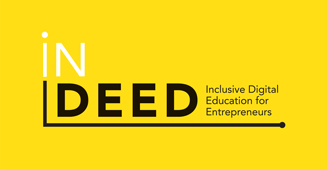Entrepreneurship Educators in Germany
What does it mean to be an entrepreneurship educator in Germany, one of the partner countries of the INDEED project?
According to the Federal Ministry for Economic Affairs and Energy, 1998 was when “the first professorial chair for entrepreneurship was established” in Germany, and there are now 133 chairs across both public and private higher education institutions (2017, p. 35)! Entrepreneurship education has an increasingly international focus, and at least thirty German universities offer entrepreneurship programs in English (My German University, 2022). In her study, Steiner found that most entrepreneurship educators in Germany have a degree in business and economic sciences and that 62% (88% when only considering full professors) have personal entrepreneurial experience (2014). Nevertheless, there is no standard profile for entrepreneurship educators in Germany.
Entrepreneurial programs teach competencies such as innovation, leadership, and networking, have the end-goal of self-employment, and support their alumni’s start-ups beyond the duration of the degree program (Kailer, 2009). Students learn how to start, grow, and scale their own businesses through classes, mentorships, and individual coaching.
Traditionally, educators in the entrepreneurship field have relied on in-person teaching methods and smaller class sizes to train and mentor their students. That’s not to say, however, that educators in Germany are hesitant to adopt new pedagogies. One Affiliate Professor, who wishes to remain anonymous, told the INDEED project, “I am always interested in acquiring new teaching skills.”
The Covid-19 pandemic forced a rapid incorporation of engaged, digital teaching methods in practically every academic field. The flexibility and versatility of ICT tools have proven them to be an essential and valuable component of teaching (DAAD, 2022), and many digital tools have become standard in the business world as well. INDEED will provide targeted digital tools and pedagogies to educators in the entrepreneurship field to ensure that they have the resources to support their students.

References
Deutscher Akademischer Austauschdienst (DAAD). (n.d.) “E-tools in Teaching at German Universities.” Retrieved 20 January, 2022 from https://www.daad.de/en/study-and-research-in-germany/plan-your-studies/digital-learning/
Federal Ministry for Economic Affairs and Energy. (July 2017) “Start-ups and Entrepreneurial Spirit in Germany.” Retrieved 26 January, 2022 from https://www.bmwi.de/Redaktion/EN/Publikationen/Mittelstand/unternehmensgruendungen-und-gruendergeist-in-deutschland.pdf?__blob=publicationFile&v=6
Kailer, Norbert. (June, 2009) “Entrepreneurship Education: Empirical Findings and Proposals for the Design of Entrepreneurship Education Concepts at Universities in German-Speaking Countries.” Journal of Enterprising Culture. 17:2, p. 201-231. DOI:10.1142/S021849580900031X
Lederman, Dough. (6 Octboer, 2020) “Faculty Confidence in Online Learning Grows.” Inside Higher Ed. https://www.insidehighered.com/digital-learning/article/2020/10/06/covid-era-experience-strengthens-faculty-belief-value-online
My German University. (26 January, 2022) “Study Entrepreneurship in Germany: 30 Universities with 44 English Degree Programs.” https://www.mygermanuniversity.com/subjects/entrepreneurship
Steiner, Susanne. (2014) “Not Just the What and How, but also the Who: The Impact of Entrepreneurship Educators” From Handbook on the Entrepreneurial University. Eds. Alain Fayolle and Dana T. Redford. https://doi.org/10.14279/depositonce-6677




